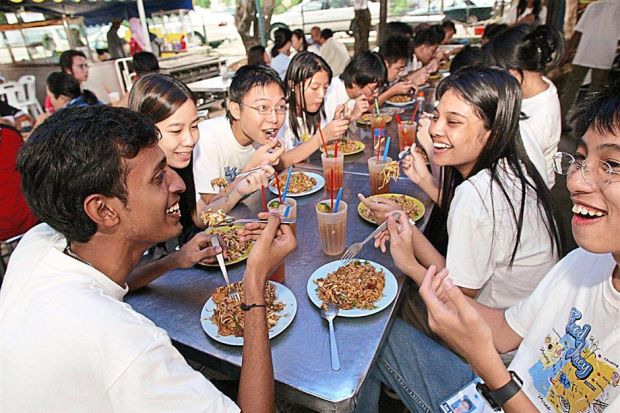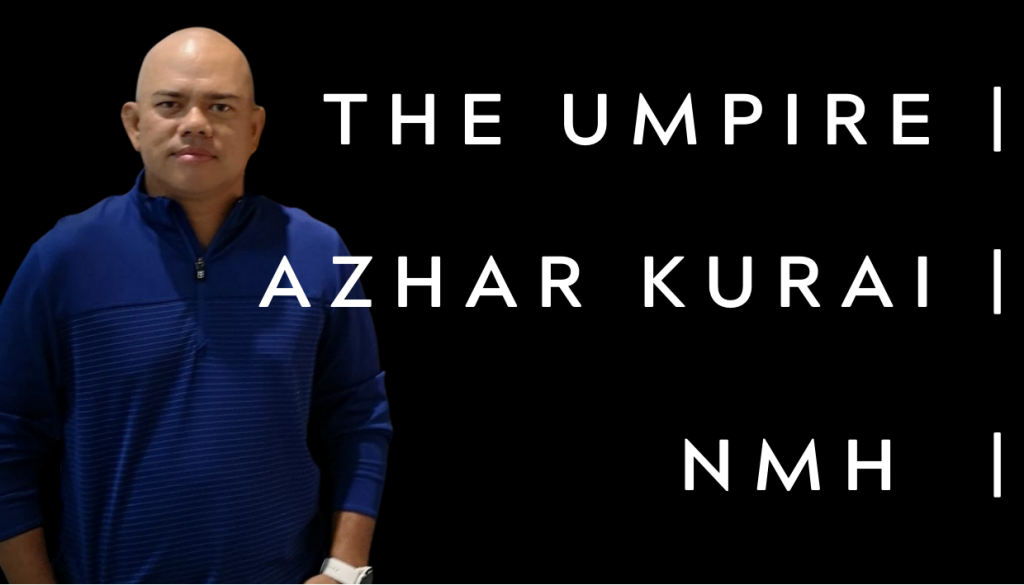

When we go to our favourite mamak restaurants, we are indulging ourselves in a piece of Malaysian culture. That would be my feeble attempt to explain in laymen terms of what Malaysian culture is, via one of our favourite topics: food. Sure, there are nasi lemak, mee kolok, Hainanese chicken rice, and various others, but the infusion of Indian food in our diet, explains partly the wonderful complexity of our multicultural make up. Contrast this to Indonesia, where there is no ‘going to the mamak’ culture. It is important for us to understand what Malaysian culture really is, for us to progress. Allow The Umpire to elaborate further, as I did in my previous article here.
As stated clearly by the National Culture Policy formulated in 1970, the Malaysian culture is Malay culture, infused with suitable elements from other dominant cultures from Borneo, Chinese, and Indian, and the various different ethnicities that make up our population. If we look back to our history, before colonialism, before the concept of nations, we used to be a part of the Malay archipelago. So when our ancestors, skilled seafarers themselves, jumped into their boats, and travel from present-day Jakarta to Singapore, or Melaka, they merely travel within their ancestral homeland. Just like how we would drive from Perlis to Kelantan today. No border checks, no passports, no visas needed.
Colonialism then changed our world, and nations were formed accordingly. The divisions were done by the British, Dutch, and the Spanish colonizers, and borders were erected. Indonesia, Malaysia, and the Philippines were born. Some of these divisions were contentious and problematic even to this day, with the constant claim of Sabah by the Philippines, as well as the complexity of the Muslim-majority of Southern Thailand. The India-Pakistan division has got to be one of the best examples of the complexities brought about by colonialism. Even today, it is easy to read ignorant comments online, when we bicker amongst ourselves, when some Malays asked the Chinese to ‘balik Tongsan’, the Indians were told to ‘balik Kerala’, and in response, the Malays were told to ‘balik Indonesia’. But in reality, Malaysia is our home today, we should all stay put, and strive to make it better.
Learn About Ourselves
And The Umpire is a big believer that we should learn about ourselves, our culture, to better understand, and to appreciate each other. It is our only way forward, to better learn from our past mistakes, chiefly the racial riots of 1969. We should re-look at our National Culture Policy of 1970 seriously.
As mentioned, there is no ‘going to the mamak’ culture in Indonesia. They simply do not have a sizable Indian population there. We do, because the British brought the Indians over to work in rubber estates, a major source of income for the British empire then. It was similar to the Chinese, who were brought in to work the tin mines, another major industry then. Hence the make up of our society today. It is pointless to argue that the Indians have been here a trillion years before, based on the temples of old Kedah, for example. That’s just for Indian politicians to get some brownie points from their target market. Bali is an island full of Hindus, yet they too don’t have the ‘going to the mamak’ culture. The make up of our current society is directly because of colonialism. We should just move on, and work from there.
Indonesia is a country of over 270 million people with more than 1,300 ethnic groups. The Javanese make up the majority with 42% of the population, followed by the Sundanese at 15%. Malay is the 3rd largest, at only 3.45%, followed by the Madurese at 3.37%. With such diverse population, with multitudes of languages, religions, customs, and rituals, it is interesting to see that everyone there speaks Indonesian, the national language, fluently. While the same can’t be said here, even with the 2nd, or 3rd generation Malaysian Chinese. Even today, we are still debating on this national language issue.
Is the Indonesian model the correct one? Or is our model even better? This is an issue we are still grappling with today. It is mind-boggling really to think of it. Have you ever met a German who can’t speak German? How about a Frenchman who can’t speak French? Or a Thai who can’t speak Thai?

The cultural development of a society is directly related to identity. In a highly globalized world, culture is the badge of distinction that separates us from the rest. People visit Bali in droves not just because of the beaches, or the paddy fields, something we too have in abundance. The Balinese culture is unique, and that’s something that keeps getting the attention of global travellers.
National Language Issue
The thing is, we still couldn’t resolve the national language issue. It is no wonder then, in 2012, the Bank Negara Museum and Art Gallery, rejected to show the Islamic calligraphy works of Husin Hourmain, a local contemporary artist. The official reason given was as follows: “It’s an interesting suggestion, but the policy is generally against showing things that take a partisan religious approach.” While it’s completely fine for the Victoria and Albert Museum in London to showcase their Islamic art collection, at home we have a prominent art institution who suppresses its development. And that’s coming from an institution that printed our Ringgit notes, with Islamic calligraphy on it. And they cited ‘partisan religious approach’ as an excuse, when the National Culture Policy clearly states that “Islam is an important component in the moulding of the National Culture.”
It’s clear that we have a long way to go with regards to our cultural development. Our failure to embrace the National Culture Policy of 1970 is evident for all to see. Something needs to be done, obviously, while we happily munch on thosai, and ‘megi goreng’ at our favorite mamak joints.
Should we just go with flow, and be ignorant about our own cultural development, while sipping on another teh tarik? Well, let’s hope not. – New Malaysia Herald
About the writer: Azhar Kurai Ahmad is a trained biochemist, turned art dealer. He is a keen observer of Malaysian politics, where he sees uncanny similarity with how the local art scene develops.
New Malaysia Herald publishes articles, comments and posts from various contributors. We always welcome new content and write up. If you would like to contribute please contact us at : editor@newmalaysiaherald.com
Facebook Comments